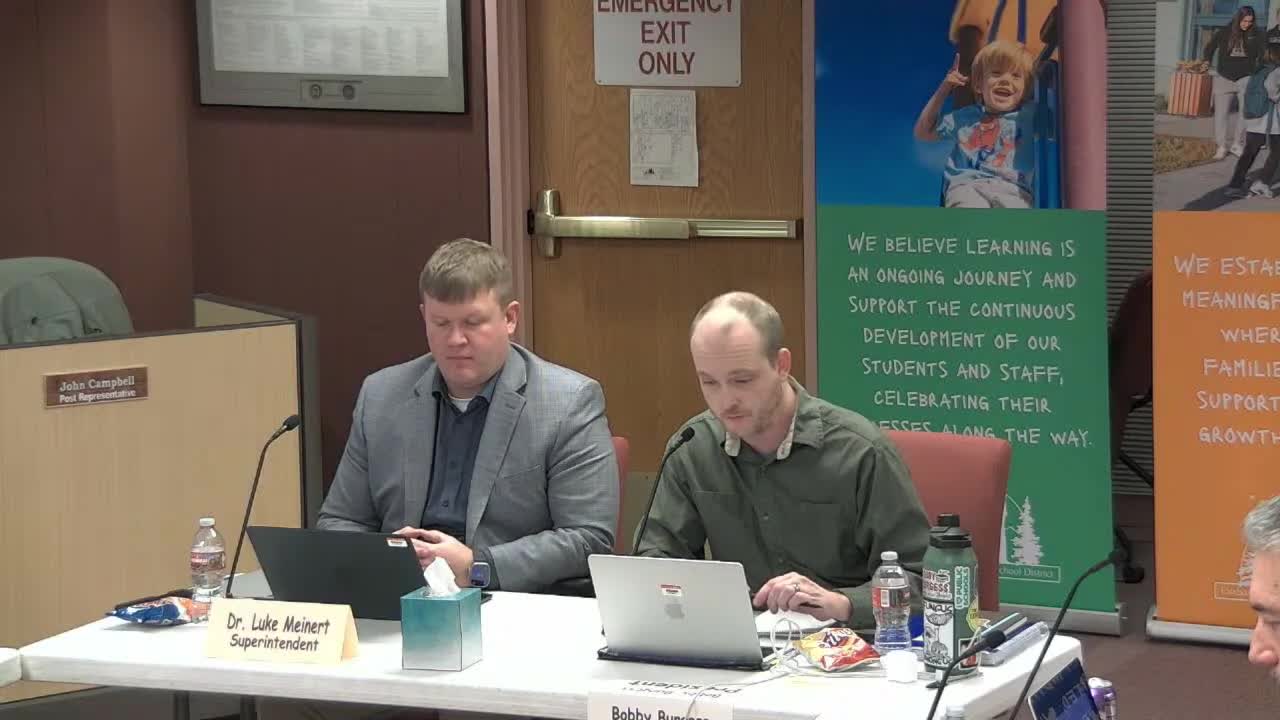Administration flags gaps and legal concerns in 2 Rivers Homestead charter application
Get AI-powered insights, summaries, and transcripts
Subscribe
Summary
District staff told the Fairbanks North Star Borough School Board that the 2 Rivers Homestead Charter application omits a draft contract and several required details — including a lottery mechanism, a core curriculum, and clear waiver approvals — and outlined potential special education, scheduling and governance issues the board must consider.
Assistant Superintendent Sarah Gillum and other district staff presented the Fairbanks North Star Borough School Board with a section-by-section administrative review of the 2 Rivers Homestead Charter School application on Nov. 10, saying the submission contains significant gaps that could prevent the board from responsibly approving the proposal.
Gillum and staff cited multiple inconsistencies in the application’s enrollment targets — it lists minimums of 75, recurring references to 100, and mentions as many as 125 or 150 students in other places — and said those numbers matter because authorization below 75 students creates a steep fiscal cliff. "Appendix b that is a part of this section is actually not included," Gillum told the board, noting the application did not contain a required draft contract between the school and the district.
Staff also raised legal and procedural concerns. The application repeatedly describes admissions as first-come, first-served with prioritized categories rather than using a random drawing; administration warned that Alaska statute requires a lottery when demand exceeds seats. Gillum drew attention to volunteer-hour requirements (including a proposal to let families donate $20 to equal one hour of volunteer time) and said current litigation in the Matanuska-Susitna Borough makes using mandatory volunteer service as a condition of enrollment legally risky.
Other gaps included no submitted core curriculum or curricular materials that district staff could review for alignment with state content standards and the statewide assessment system, no sample daily schedule to evaluate preparation and duty-free time for certified staff, and several policy waivers the charter would need but had not shown as approved. On special education the district noted a half-time special education teacher is budgeted for a 100-student school and that the application’s parent compact contains language suggesting some specialized services "may not be offered here," prompting questions about how the charter would consistently handle students whose least restrictive environment is a districtwide program.
Several board members pressed administration about what missing items mean for the board’s options. Superintendent Doctor Minor said administration found "a ton of exciting components" in the application but added it would be "irresponsible for me as the superintendent to recommend the board adopts or accepts this charter application with the gaps that we're seeing within it currently the way it stands." Board members asked whether additional materials submitted between now and a future meeting would change the record; administration replied that extras provided informally could help the discussion but would not alter the formal application the board would be asked to act on unless the applicant withdrew and resubmitted a completed application.
The board’s questions ranged from legal requirements for waivers to how the charter would address least restrictive environment placements, and from operational details for after-school programming to whether the application’s preferred admissions categories have precedent in district charters. The session concluded with administration offering to continue to work with the APC on outstanding items and to return with advice for the board on procedural and legal questions.
